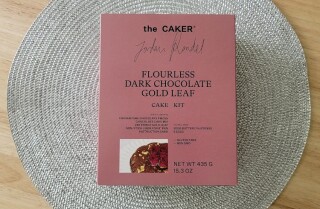Coffeeholics can be split into three categories: those that drink for the flavor, those that drink for the rush, and those that do it for both. If you’re part of the first or last categories, then you’re probably familiar with the different types of coffee beans, their differences in scent and flavor, as well as different ways of preparing coffee. But what is the best appliance for preparing coffee at home? With so many options out there, it can be difficult to choose the best coffee maker for you. Keep on reading to get all the inside gossip on the different kinds of coffee makers.
The Best Coffee Makers at Home
The Espresso Machine
Espresso machines are a perennial favorite with coffee enthusiasts. These machines let you pull those distinctive concentrated shots of coffee made possible by specialized equipment. You can drink espresso straight, or you can use these shots to create just about any coffee drink you can think of. It sounds almost too good to be true, but be aware that there are some drawbacks as well.
First and foremost, a quality espresso machine isn't exactly cheap. While it's definitely possible to find lower-priced equipment, you'll want to invest the extra money in an espresso machine made by a reputable manufacturer. The other drawback is the lack of complexity - beyond how you grind your beans and tamp them into the basket, you won't have much control over the final product. You can make changes to the coffee after it’s prepared, but the machine does most of the work on its own, and you’re left with the same result every single time. This is great for consistency, but when you’re trying to go for a very specific flavor, you lack the tools to do so.
French Press
The French press creates coffee by utilizing a filter attached to a plunger. You brew the coffee by mixing hot water with ground beans, then pressing the filter into the mixture via the plunger to separate the grounds from the coffee. This is often what many coffee lovers go for when it comes to making high-quality coffee. French presses really bring out the best in coffee beans, as you’re able to extract a lot from them using this method.
With this level of flavor and oomph, however, comes a similar level of effort. The process is more manual than you think, and you will be spending a bit of time fiddling with the tools and ingredients before you get your morning fix. This can be difficult to do if you usually have a busy and rushed morning, so people usually prepare coffee with a French press only when they have some extra time on their hands. They're also a pain to clean once you're done with your coffee, so make sure you're not in a rush when using a French press.
Pour-over Coffee
While there is a debate as to whether French press coffee is considered pour-over coffee or not, for the purposes of this article, pour-over coffee refers to methods not related to French press coffee. This usually means filter-based coffee. Pour-over coffee is great because it gives you a lot of control over how you want your coffee to brew. You can control many different factors, including the filter you use, the temperature of the water that you’re brewing the coffee with, and the rate at which you pour the water through the filter.
These different layers of control allow you to brew the perfect coffee that’s made just for you. Fine-tuning your methods to find the right combination is a fun journey, but just like with the French press, it takes both time and effort to do.






